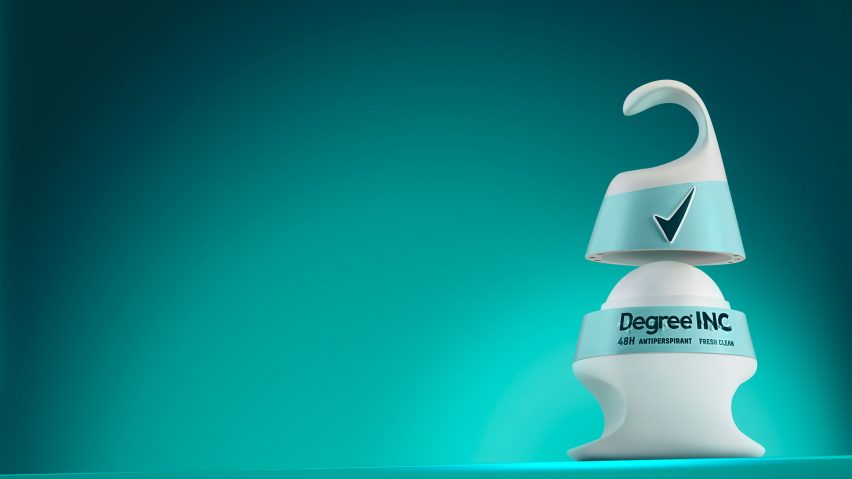
Degree Inclusive is a deodorant packaged for people with disabilities
Adaptive design studio Sour and creative agency Wunderman Thomson have developed accessible deodorant packaging for Unilever to make the product easier to use for people with limited mobility or visual impairments.
Called Degree Inclusive the packaging was designed for deodorant brand Degree – also known as Sure, Shield or Rexona in different regions.
To create the product, which Unilever describes as a "world's first", the company partnered with adaptive design studio Sour and inclusive creative agency Wunderman Thomson, which is led by designer Christina Mallon who has limited arm mobility herself.
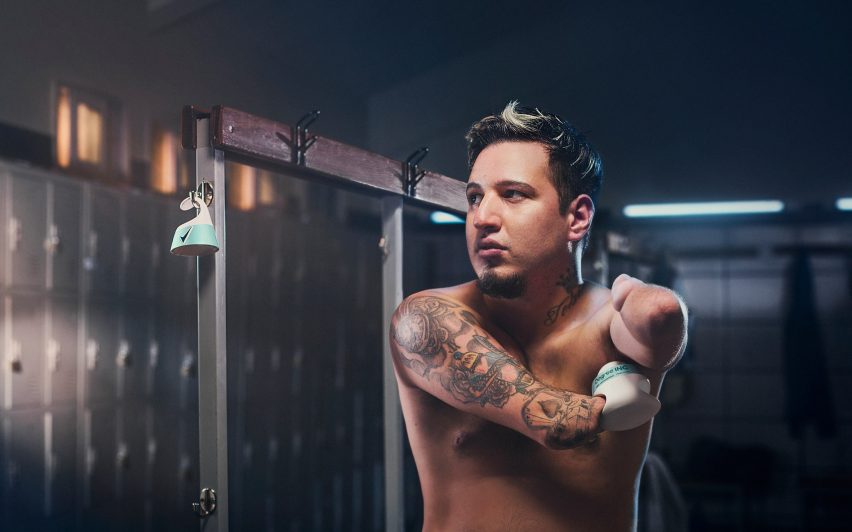
"As a disabled person, I've experienced first-hand the challenges of living in a world of conventional design where most products and services are not designed with the disabled community in mind," said Mallon.
"Being unable to access a basic utility like deodorant – something most people take for granted – has a huge impact on your ability to move and therefore your quality of life in general."
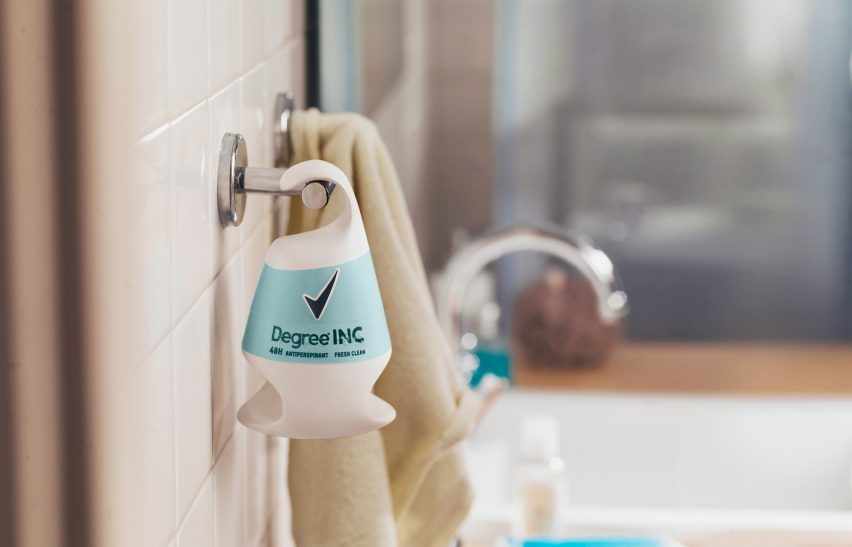
The Degree Inclusive design has a number of features new to deodorant packaging including an easy-grip shape and a larger roll-on applicator that can cover more surface area in one swipe.
The cap has a magnetic closure that allows it to be taken off and put on more easily by users with limited grip or visual impairment. The hooked lid also allows the deodorant to be hung to enable one-handed usage and the label features instructions in braille.
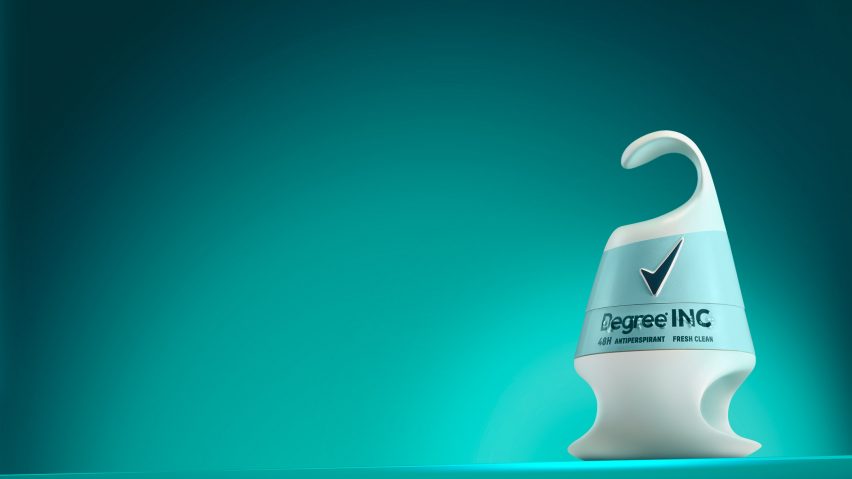
According to Mallon, the grip at the bottom of the deodorant is its most revolutionary feature.
"Our partner Sour designed it in a way that not only has flexibility in how it's used and size, but also in a way that very much feels part of the form," Mallon told Dezeen.
"So many accessibility features and tools out there look medical, so it was very important to us to create something people don't have to use, but want to use."
The Degree Inclusive prototype is now in a beta testing programme that will gather input from 200 participants who are living with disabilities.
They will help to hone the product and messaging with a view to a future commercial launch, as well as helping to decide how the refillable product will be sold to consumers.
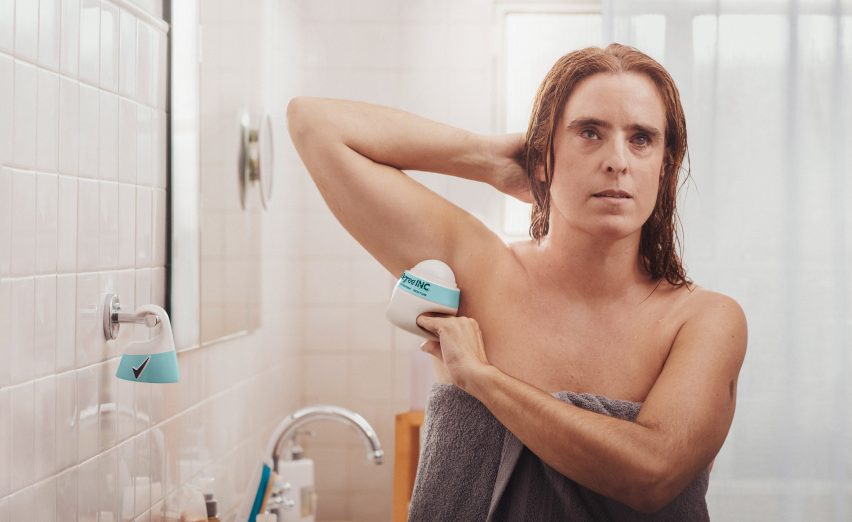
According to Wunderman Thompson, accessible design leads to better design for everyone, as companies are 1.7 times more likely to be innovative in other ways if they are inclusive.
The agency also pointed to statistics that show one in four Americans and one in five Brits has a disability – not to mention that most people will experience a decline in their sight and mobility towards the end of their lives – yet products and experiences are rarely designed with these factors in mind.
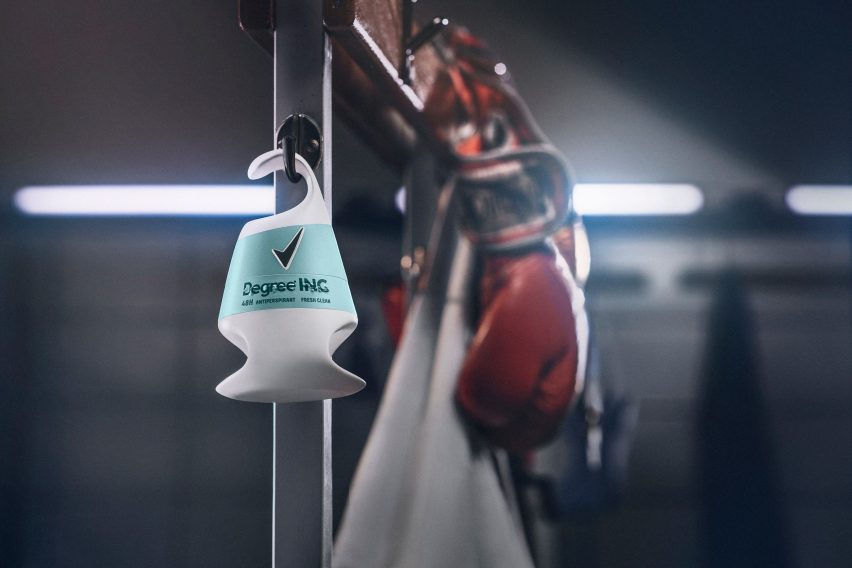
"Everyone becomes disabled at some point in their lives, so ability should be a consideration on every design brief," said Mallon. "This type of designing should be the norm."
Other innovations in inclusive packaging design include Microsoft's easy-to-open box for its accessible Xbox controller.